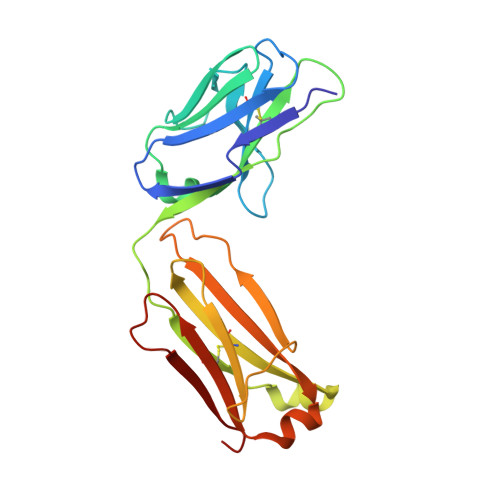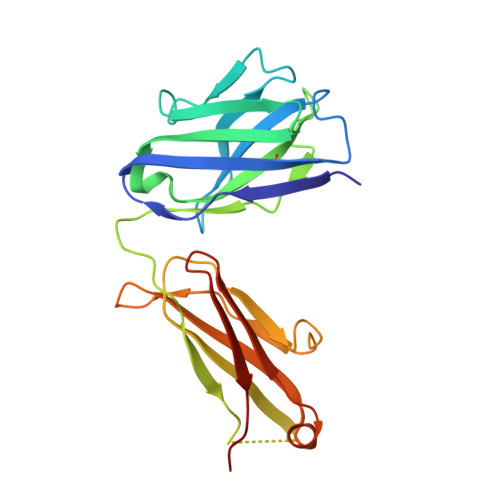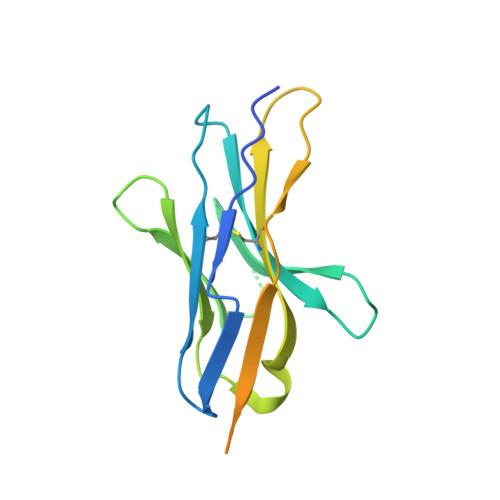Selection of a PD-1 blocking antibody from a novel fully human phage display library.
Peissert, F., Pluss, L., Giudice, A.M., Ongaro, T., Villa, A., Elsayed, A., Nadal, L., Dakhel Plaza, S., Scietti, L., Puca, E., De Luca, R., Forneris, F., Neri, D.(2022) Protein Sci 31: e4486-e4486
- PubMed: 36317676
- DOI: https://doi.org/10.1002/pro.4486
- Primary Citation of Related Structures:
8AS0 - PubMed Abstract:
Programmed cell death protein 1 (PD-1) is an immunoregulatory target which is recognized by different monoclonal antibodies, approved for the therapy of multiple types of cancer. Different anti-PD-1 antibodies display different therapeutic properties and there is a pharmaceutical interest to generate and characterize novel anti-PD-1 antibodies. We screened multiple human antibody phage display libraries to target novel epitopes on the PD-1 surface and we discovered a unique and previously undescribed binding specificity (termed D12) from a new antibody library (termed AMG). The library featured antibody fragments in single-chain fragment variable (scFv) format, based on the IGHV3-23*03 (V H ) and IGKV1-39*01 (Vκ) genes. The D12 antibody was characterized by surface plasmon resonance (SPR), cross-reacted with the Cynomolgus monkey antigen and bound to primary human T cells, as shown by flow cytometry. The antibody blocked the PD-1/PD-L1 interaction in vitro with an EC 50 value which was comparable to the one of nivolumab, a clinically approved antibody. The fine details of the interaction between D12 and PD-1 were elucidated by x-ray crystallography of the complex at a 3.5 Å resolution, revealing an unprecedented conformational change at the N-terminus of PD-1 following D12 binding, as well as partial overlap with the binding site for the cognate PD-L1 and PD-L2 ligands which prevents their binding. The results of the study suggest that the expansion of antibody library repertoires may facilitate the discovery of novel binding specificities with unique properties that hold promises for the modulation of PD-1 activity in vitro and in vivo.
Organizational Affiliation:
Philochem AG, Otelfingen, Switzerland.
























